
The Tranquil Shores of Anabar District, Nauru
Anabar District, located in the northeastern part of Nauru, is a hidden gem for travelers looking for a peaceful retreat. Known for its serene beaches and friendly locals, Anabar offers a unique blend of natural beauty and cultural charm. The district is small but rich with the essence of island life, making it an ideal spot for those who want to escape the hustle and bustle of more crowded destinations. The coastline of Anabar is adorned with pristine white-sand beaches and crystal-clear waters. The gentle waves provide a perfect setting for swimming, snorkeling, and fishing. Visitors often marvel at the vibrant marine life that can be seen just below the surface. The district's relaxed vibe allows tourists to unwind and soak in the tranquil atmosphere. In addition to its natural attractions, Anabar is home to a number of cultural sites that offer a glimpse into the traditional lifestyle of the Nauruan people. Local markets and small eateries serve delicious seafood and local delicacies, giving visitors a taste of the island's culinary heritage. The warm hospitality of the residents adds to the overall charm of the district, making every visitor feel welcome.
Local tips in Anabar District
- Visit early in the morning to enjoy the beaches at their most peaceful.
- Try the local seafood dishes at small eateries for an authentic taste of Nauru.
- Bring snorkeling gear to explore the vibrant underwater life.
- Engage with local residents to learn about the district's culture and traditions.
The Tranquil Shores of Anabar District, Nauru
Anabar District, located in the northeastern part of Nauru, is a hidden gem for travelers looking for a peaceful retreat. Known for its serene beaches and friendly locals, Anabar offers a unique blend of natural beauty and cultural charm. The district is small but rich with the essence of island life, making it an ideal spot for those who want to escape the hustle and bustle of more crowded destinations. The coastline of Anabar is adorned with pristine white-sand beaches and crystal-clear waters. The gentle waves provide a perfect setting for swimming, snorkeling, and fishing. Visitors often marvel at the vibrant marine life that can be seen just below the surface. The district's relaxed vibe allows tourists to unwind and soak in the tranquil atmosphere. In addition to its natural attractions, Anabar is home to a number of cultural sites that offer a glimpse into the traditional lifestyle of the Nauruan people. Local markets and small eateries serve delicious seafood and local delicacies, giving visitors a taste of the island's culinary heritage. The warm hospitality of the residents adds to the overall charm of the district, making every visitor feel welcome.
When is the best time to go to Anabar District?
Iconic landmarks you can’t miss
Nauru Australian Immigration Detention Center
Explore the Nauru Immigration Detention Center—a complex site of history, immigration policy, and the human experience in a beautiful island setting.
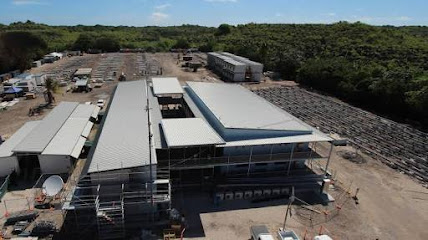
Budapest Hotel
Discover the unique charm and comfort of Budapest Hotel, your perfect base for exploring the stunning island of Nauru.
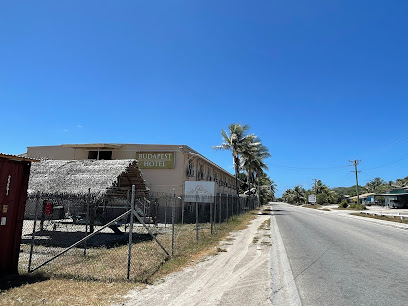
Anabar Beach
Discover the serene beauty of Anabar Beach in Nauru, where crystal-clear waters and soft sands create a perfect escape for relaxation and adventure.
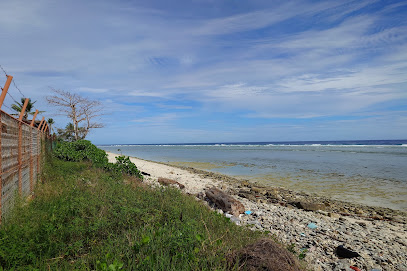
Parliament House
Explore the fascinating Parliament House in Yaren, a symbol of governance and national pride in Nauru, showcasing beautiful architecture and rich history.
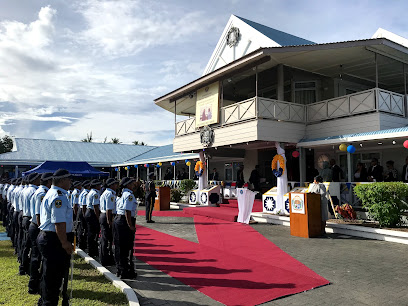
Praises Restaurant
Experience authentic Chinese cuisine at Praises Restaurant in Anabar, where every dish tells a story and flavors come alive.
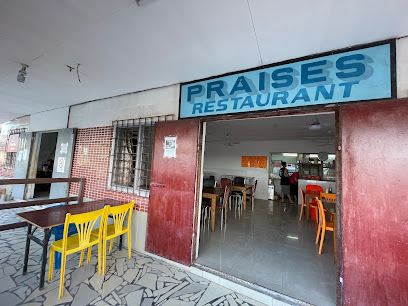
Anibare Bay
Explore the tranquil beauty of Anibare Bay, a pristine beach destination in Nauru perfect for relaxation, swimming, and snorkeling adventures.
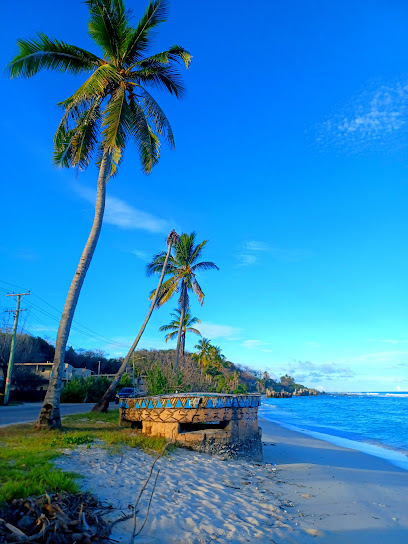
Naoero Museum
Explore Nauru's past at Naoero Museum – a treasure trove of history, culture, and heritage in the heart of Yaren.
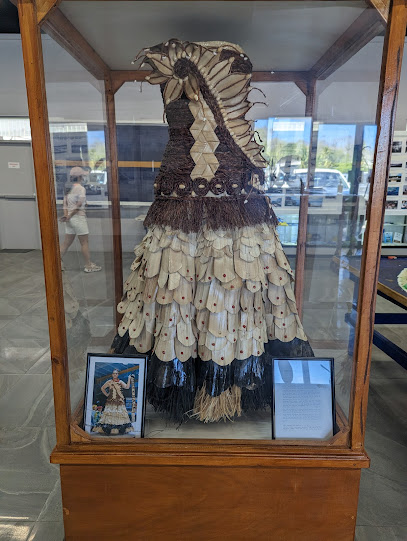
Somewhere Else in Nauru
Discover the flavors of Nauru at Somewhere Else in Arijejen — a charming restaurant offering fresh, local cuisine and a warm, inviting atmosphere.
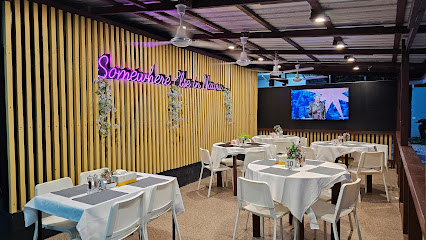
Command Ridge
Discover the breathtaking views and rich history at Command Ridge, Nauru's highest point, where nature and heritage meet in a stunning landscape.

Jullem
Experience authentic Chinese cuisine at Jullem in Anibare, offering delicious dishes in a cozy and welcoming atmosphere.
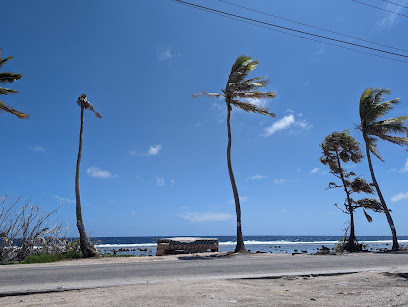
Power Station Control
Discover the Power Station Control in Arijejen, a remarkable fusion of engineering and sustainability set against stunning natural landscapes.
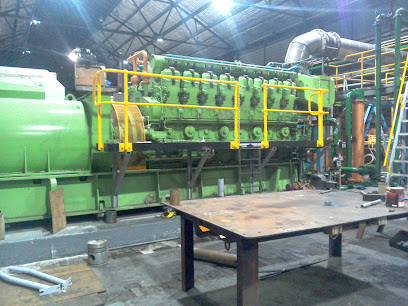
WWII Memorial Monument
Explore the WWII Memorial Monument in Orro, a historical landmark honoring the sacrifices of World War II heroes with serene surroundings for reflection.
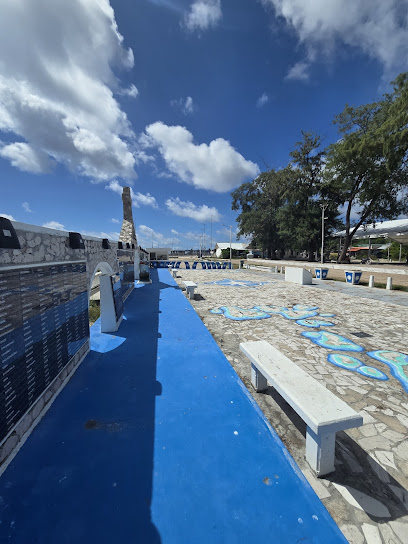
WW2 Japanese Bunker
Uncover the intriguing history of the WW2 Japanese Bunker in Anabar, a significant landmark offering a unique glimpse into World War II.
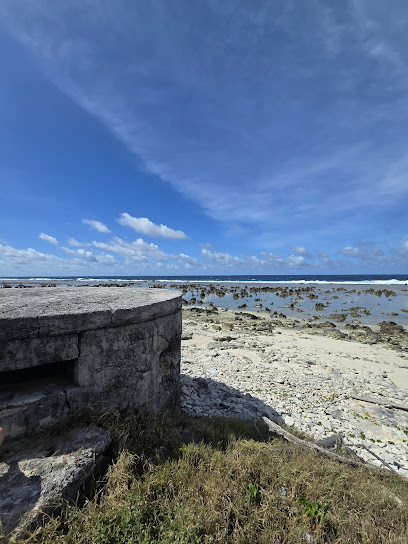
Eastern Nauruan Beach
Discover the tranquility of Eastern Nauruan Beach, a hidden paradise with golden sands and crystal-clear waters perfect for relaxation and adventure.

Central Plateau
Discover the breathtaking beauty of Central Plateau, a serene natural wonder perfect for hiking, picnicking, and immersing yourself in nature's tranquility.

Unmissable attractions to see
WW2 Bunker
Discover the WW2 Bunker in Anabar, a significant historical landmark that offers a profound insight into the past and the experiences of World War II.
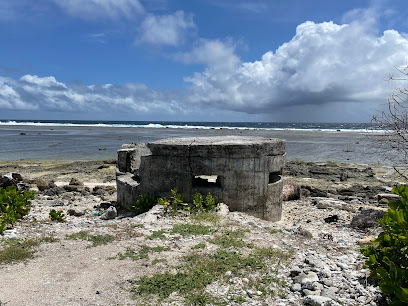
Twin Guns
Discover the breathtaking Twin Guns in Yaren, a stunning natural attraction featuring dramatic cliffs and serene coastal views, perfect for every traveler.

Essential places to dine
The Bay Restaurant
Experience exceptional seafood and stunning ocean views at The Bay Restaurant in Anibare, Nauru - a culinary treasure by the sea.
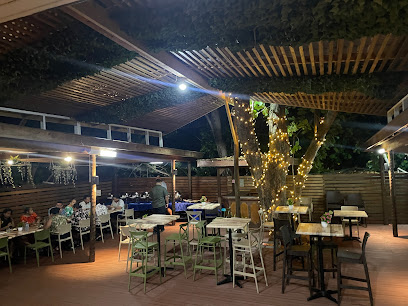
OMG Sushi Restaurant
Experience authentic Japanese cuisine at OMG Sushi Restaurant in Orro – where fresh ingredients meet exquisite flavors in every bite.
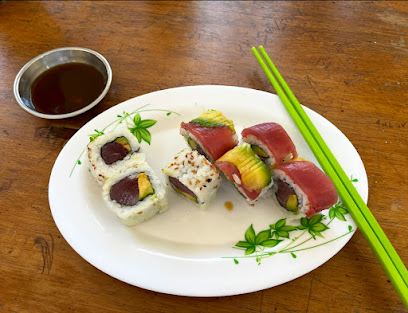
Mr Chippies
Savor the flavors of Nauru at Mr Chippies - where delicious cuisine meets warm hospitality in Anibare.
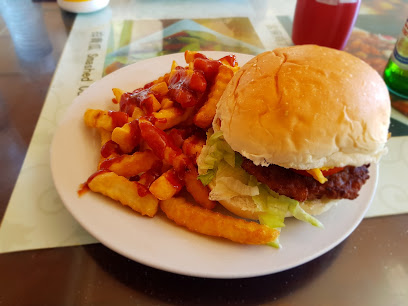
Star Kingdom
Experience authentic Asian cuisine at Star Kingdom in Boe, Nauru - where every dish tells a story.
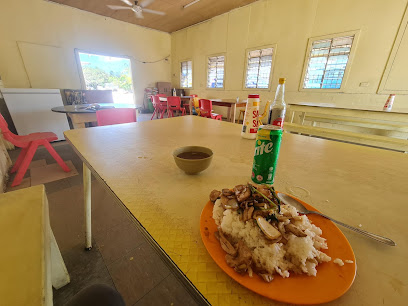
Chinese Restaurant Buada
Savor authentic Chinese flavors at Buada in Arenibek—an unforgettable culinary experience awaits every visitor.

Praises Restaurant
Experience the essence of China at Praises Restaurant in Anabar with authentic flavors and inviting atmosphere.
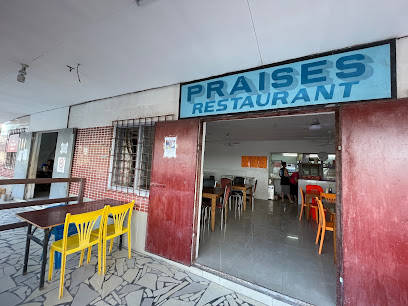
Anibare Boat Harbour Restaurant
Experience authentic Nauruan cuisine at Anibare Boat Harbour Restaurant with stunning bay views and fresh seafood delights.
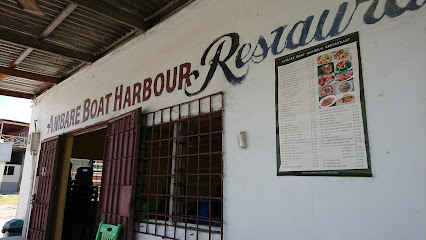
Florrowest Restaurant
Discover the flavors of Boe at Florrowest Restaurant – where local cuisine meets warm hospitality.
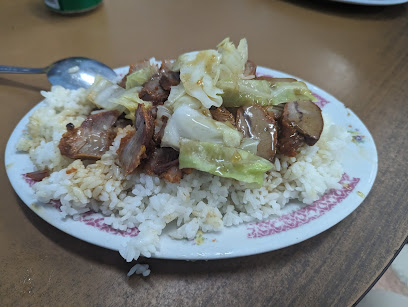
Somewhere Else in Nauru
Discover authentic Nauruan cuisine at Somewhere Else in Nauru – where local flavors meet global culinary trends.
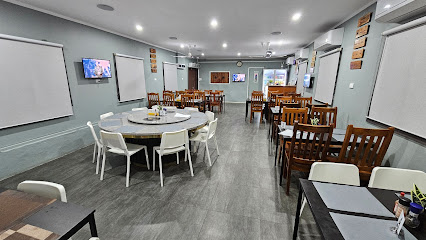
Lucky Tigeress Yum Cha
Discover authentic dim sum delights at Lucky Tigeress Yum Cha, Arijejen's premier breakfast destination offering vibrant flavors and warm hospitality.
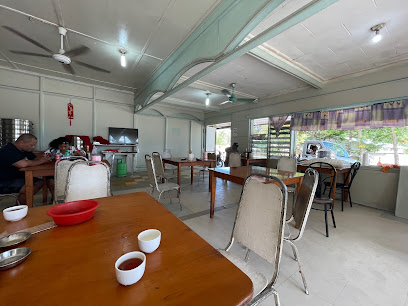
Jullem
Experience authentic Chinese cuisine at Jullem in Anibare, where every dish tells a story of flavor and tradition.
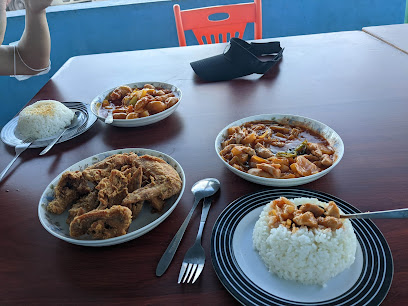
J’ RESTAURANT
Discover J’ Restaurant in Arijejen for an unforgettable experience of authentic Chinese cuisine amidst a warm and inviting atmosphere.
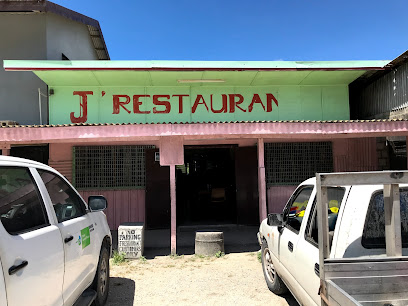
Double J
Discover culinary excellence at Double J in Ibwenape, where local flavors meet international cuisine in a cozy atmosphere.
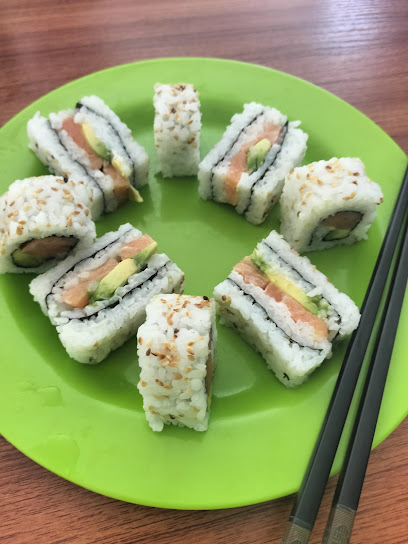
Crystal Kitchen
Discover the family-friendly charm of Crystal Kitchen in Anibare - where cleanliness meets delicious dining experiences.
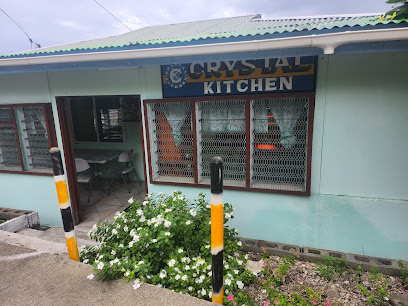
Gabab Restaurant
Experience the authentic taste of China at Gabab Restaurant in Boe – where delicious flavors meet warm hospitality.
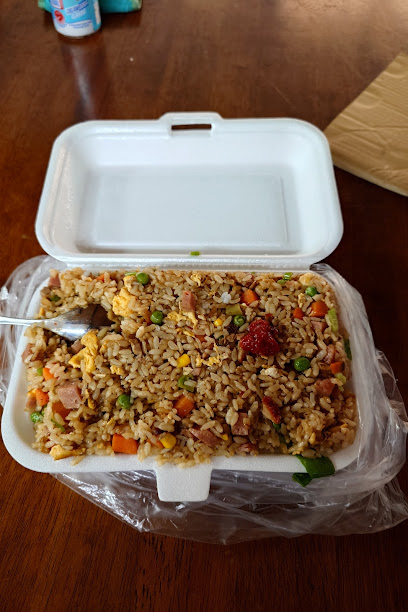
Markets, malls and hidden boutiques
Pacific store
Discover the local flavors and essentials at Pacific Store, your go-to grocery destination in Nibok for all your shopping needs.
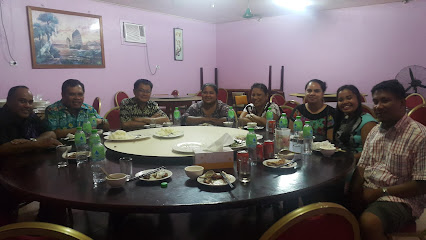
Zombies Store
Discover the charm of Zombies Store in Yaren, Nauru, a general store offering unique local crafts and essential goods for travelers.

Vim No.1 Store
Discover local flavors and everyday essentials at Vim No.1 Store in Arijejen, your go-to grocery destination in Nauru.
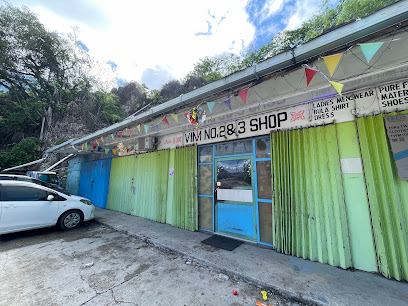
Ataro Bay Store
Experience the flavors of the island at Ataro Bay Store, your go-to grocery spot for local culinary treasures and essentials.
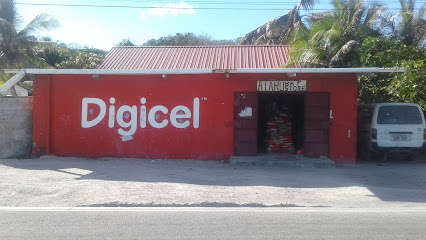
Elizabeth's Garden
Explore unique treasures and local culture at Elizabeth's Garden in Boe, where friendly service and fair prices await every visitor.
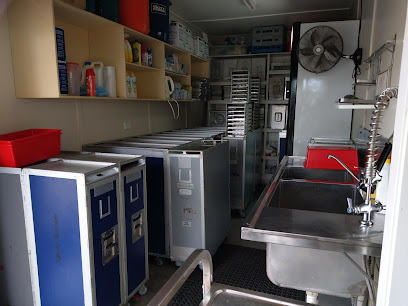
Sunset CornerEnterprise
Discover the essence of Borderline at Sunset Corner, your go-to general store for unique local finds and charming shopping experiences.
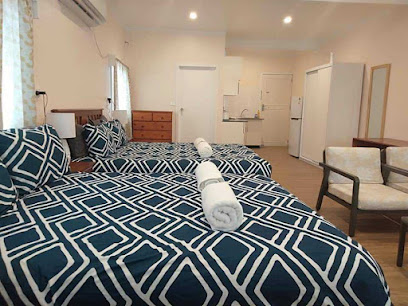
Rainbow Store
Explore the Rainbow Store in Baiti for an essential shopping experience filled with local flavors and convenient finds.
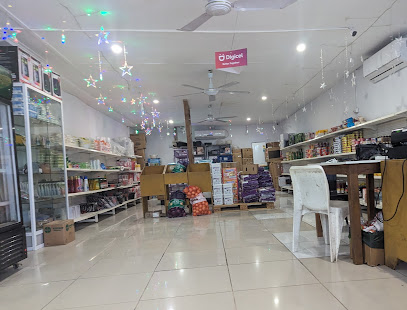
Tuka Luka Store
Explore Tuka Luka Store in Yaren for unique clothing that captures the essence of Nauru's vibrant culture and style.

MyStore
Explore the heart of Yaren at MyStore: your essential stop for local flavors, unique products, and friendly service.

Halo Store
Explore Halo Store in Arenibek for a unique selection of local products, essential goods, and memorable souvenirs that embody the island's culture.
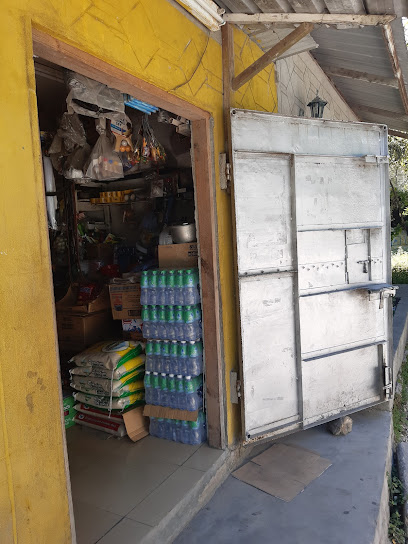
TOROPICANA CAFE
Experience the serene ambiance and delightful flavors at Toropicana Cafe, your perfect coffee escape along the Island Ring Road.
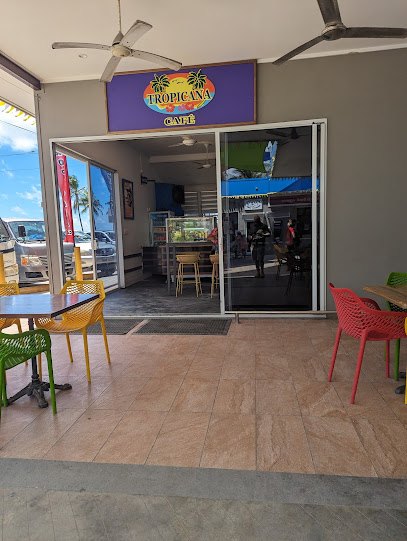
Abwan Warehouse
Explore Abwan Warehouse in Arijejen for unique home goods that reflect local craftsmanship and culture, perfect for enhancing your living spaces.

Sparkle 7
Explore Sparkle 7, Iangan's vibrant smart shop, where local crafts meet innovative gadgets for a unique shopping experience.

IJ Store
Discover the local flavors and unique products at IJ Store, a vibrant grocery store in Ijuw, perfect for tourists seeking culinary delights.

3 in 1 Store
Explore the 3 in 1 Store in Ronave for unique local goods, souvenirs, and a glimpse into the vibrant culture of this charming destination.

Essential bars & hidden hideouts
The Bay Restaurant
Experience the flavors of Anibare at The Bay Restaurant, where fresh seafood meets stunning ocean views for an unforgettable dining experience.
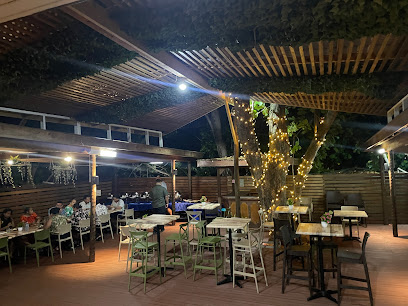
Jules On The Deck
Discover the relaxing charm of Jules On The Deck, where refreshing drinks meet stunning views in the heart of Nibok.
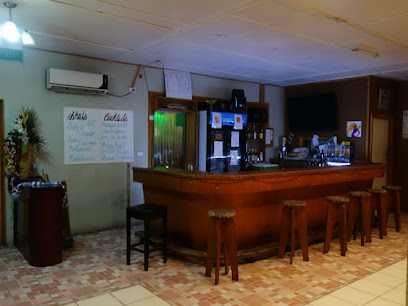
OMG Sushi Restaurant
Discover the unique flavors of Japanese cuisine at OMG Sushi Restaurant in Orro, where every dish tells a story of freshness and culinary artistry.
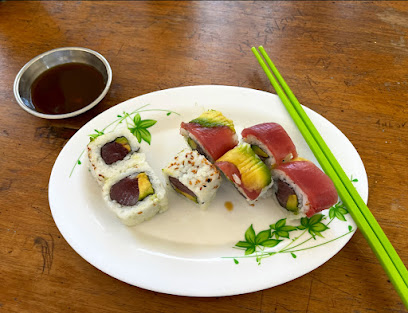
Anabar Beach
Experience the tranquil beauty of Anabar Beach, a serene paradise perfect for relaxation and adventure on the stunning island of Niue.
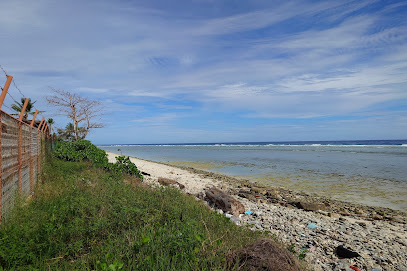
Reef Bar
Discover the tropical charm of Reef Bar in Anibare, Nauru, where stunning beach views and refreshing drinks create an unforgettable experience.
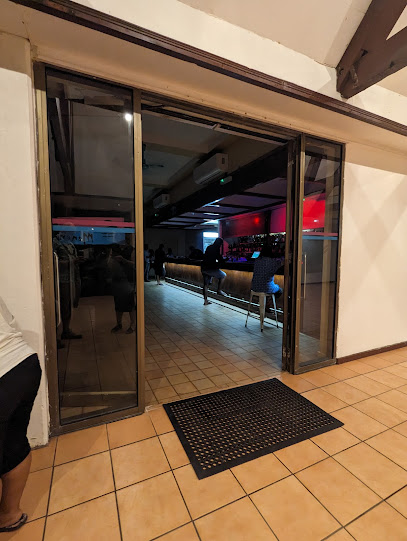
Mr Chippies
Discover the best fish and chips in Anibare at Mr Chippies, where local flavors meet a cozy dining atmosphere.
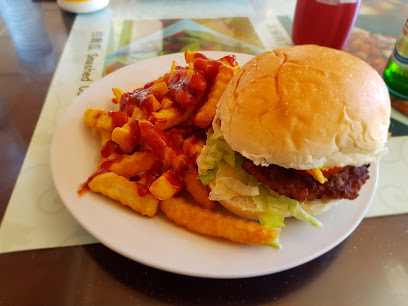
Star Kingdom
Experience the rich flavors of Asia at Star Kingdom, a delightful restaurant in Boe offering an inviting atmosphere and a diverse menu.
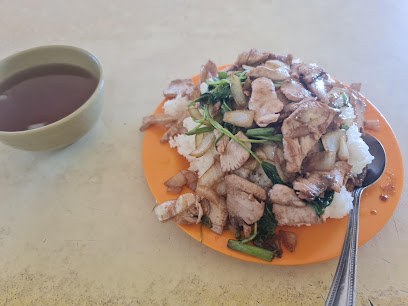
Praises Restaurant
Discover the authentic taste of Chinese cuisine at Praises Restaurant in Anabar, where every meal is a flavorful journey.
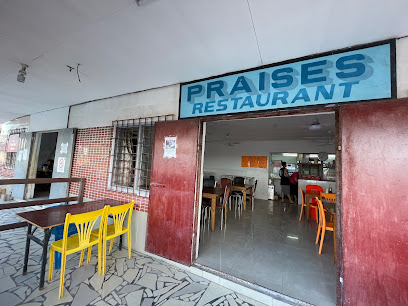
Anibare Boat Harbour Restaurant
Experience exquisite dining at Anibare Boat Harbour Restaurant, where local flavors meet stunning ocean views in a tranquil setting.
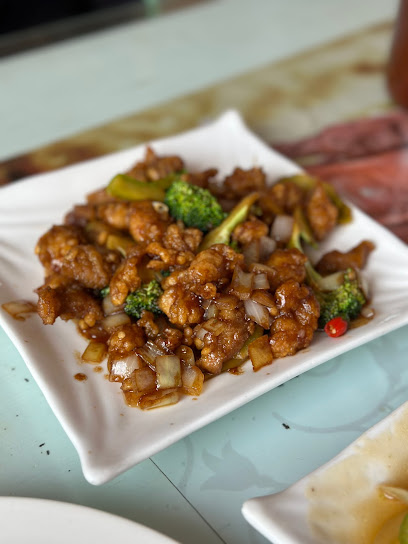
Somewhere Else in Nauru
Experience the flavors of Nauru at Somewhere Else, a top restaurant boasting local and international cuisine in a serene setting.
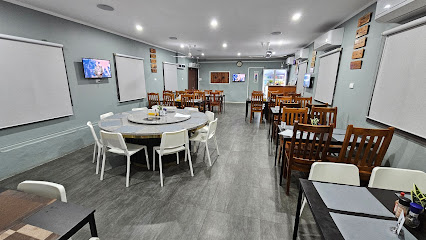
Jullem
Experience authentic Chinese cuisine at Jullem in Anibare, a culinary haven for food lovers seeking a unique dining adventure.
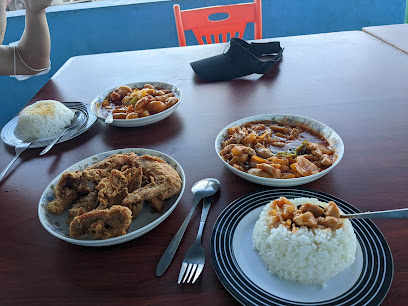
Double J
Experience the flavors of Ibwenape at Double J, a charming restaurant offering local cuisine and a cozy atmosphere for all visitors.
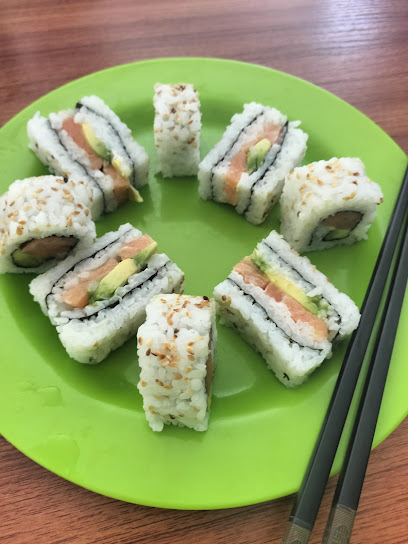
Crystal Kitchen
Discover the family-friendly charm of Crystal Kitchen in Anibare, where delicious meals and warm hospitality await visitors of all ages.
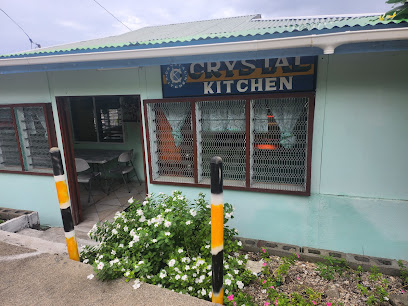
Milk Bar
Discover the joy of creamy delights at Yangor's beloved Milk Bar, where every sip brings a taste of local flavors and community spirit.
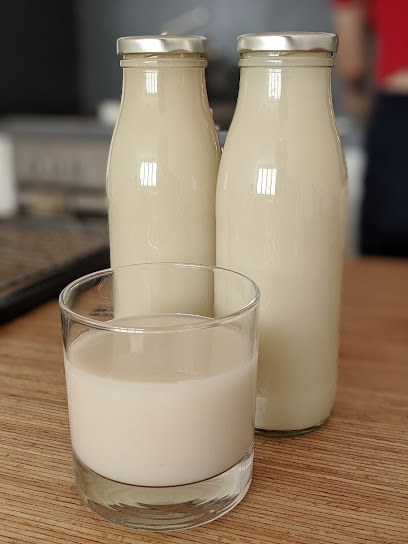
Local Phrases about Anabar District
-
- HelloIa orana
[ee-ah oh-rah-nah] - GoodbyeNana
[nah-nah] - YesE
[eh] - NoAere
[ah-reh] - Please/You're welcomeMaeva
[my-eh-vah] - Thank youMauruuru
[mah-roo-roo] - Excuse me/SorryPardon
[par-dohn] - How are you?O vai oe?
[oh vah-ee oh-eh] - Fine. And you?Maitai. O oe?
[my-tie. oh oh-eh] - Do you speak English?Ua haere oe i te reo parau?
[oo-ah hah-eh-reh oh-eh ee teh reh-oh pah-rah-oo] - I don't understandAita au mohio
[ah-ee-tah oh moh-hee-oh]
- HelloIa orana
-
- I'd like to see the menu, pleaseE mea tāku e kite i te piha, mea te kore
[eh meh-ah tah-koo eh kee-teh ee teh pee-hah, meh-ah teh koh-reh] - I don't eat meatKare au kaai i te kai
[kah-reh oh kah-ah-ee ee teh kah-ee] - Cheers!Manuia!
[mah-noo-ee-ah] - I would like to pay, pleaseE mea tāku e utu, mea te kore
[eh meh-ah tah-koo eh oo-too, meh-ah teh koh-reh]
- I'd like to see the menu, pleaseE mea tāku e kite i te piha, mea te kore
-
- Help!Aide!
[ayd] - Go away!Haere atu!
[hah-eh-reh ah-too] - Call the Police!Tatau i te Pure
[tah-tow ee teh poo-reh] - Call a doctor!Tatau i te toetoe
[tah-tow ee teh toh-eh-toh-eh] - I'm lostKare au i te ore
[kah-reh oh ee teh oh-reh] - I'm illKare au e maoa
[kah-reh oh eh mah-oh-ah]
- Help!Aide!
-
- I'd like to buy...E mea tāku e hoko...
[eh meh-ah tah-koo eh hoh-koh] - I'm just lookingKare au e kite
[kah-reh oh eh kee-teh] - How much is it?E hia te moni?
[eh hee-ah teh moh-nee] - That's too expensiveMeri noa te moni
[meh-ree noh-ah teh moh-nee] - Can you lower the price?E taea e koe te faaiti i te moni?
[eh tah-eh-ah eh koh-eh teh fah-ah-ee-tee ee teh moh-nee]
- I'd like to buy...E mea tāku e hoko...
-
- What time is it?He aha te wa?
[heh ah-hah teh wah] - It's one o'clockHe ha te haa
[heh hah teh hah-ah] - Half past (10)He ha te toru
[heh hah teh toh-roo] - MorningAtaata
[ah-tah-ah-tah] - AfternoonApopo
[ah-poh-poh] - EveningAroaro
[ah-roh-ah-roh] - YesterdayIne
[ee-neh] - TodayNa
[nah] - TomorrowApōpo
[ah-poh-poh] - 1Tahi
[tah-hee] - 2Rua
[roo-ah] - 3Toru
[toh-roo] - 4Whā
[fah] - 5Rima
[ree-mah] - 6Ono
[oh-noh] - 7Whitu
[fee-too] - 8Waru
[wah-roo] - 9Iwa
[ee-wah] - 10Tekau
[tay-kow]
- What time is it?He aha te wa?
-
- Where's a/the...?Kei hea te...?
[keh heh-ah teh] - What's the address?He aha te wāhitau?
[heh ah-hah teh wah-hee-tow] - Can you show me (on the map)?Ka taea e koe te whakaatu i ahau (i runga i te mahere)?
[kah tah-eh-ah eh koh-eh teh fah-kah-ah-too ee ah-how (ee roon-gah ee teh mah-heh-reh)] - When's the next (bus)?He aha te wa kei te heke atu te (auta)?
[heh ah-hah teh wah keh teh heh-keh ah-too teh ow-tah] - A ticket (to ....)He tiketi (ki ...)
[heh tee-keh-tee (kee)]
- Where's a/the...?Kei hea te...?
History of Anabar District
-
Before European contact, the Anabar District, like the rest of Nauru, was inhabited by the indigenous Nauruan people. The district was part of a larger network of 12 tribes that lived on the island. The Nauruan society was characterized by a complex clan system, with each clan having its own specific roles and responsibilities. The Anabar District played a significant role in the traditional fishing and agricultural practices, which were the mainstays of the Nauruan economy.
-
European contact with Nauru began in the late 18th century when British sea captain John Fearn sighted the island in 1798. However, it wasn't until the late 19th century that the island, including Anabar District, came under European colonial influence. The Germans annexed Nauru in 1888 and established a protectorate. Anabar, like other districts, saw significant changes in its social and economic structures during this period, including the introduction of Christianity and Western education.
-
The discovery of phosphate in Nauru in 1900 marked a transformative period for the island, including Anabar District. The British Phosphate Commissioners began large-scale mining operations, which led to significant economic development but also environmental degradation. The Anabar District, along with other parts of Nauru, saw the influx of foreign workers and the establishment of infrastructure to support the mining industry. This period also laid the groundwork for future economic challenges as the phosphate resources began to deplete.
-
During World War II, Nauru, including Anabar District, was occupied by Japanese forces from 1942 to 1945. The occupation brought hardship to the local population, including forced labor and food shortages. Anabar, like other districts, was heavily fortified by the Japanese, who built bunkers and other military installations. The end of the war saw the return of Allied control, and Nauru was placed under a United Nations trusteeship administered by Australia.
-
Nauru gained its independence in 1968, and with it, the Anabar District embarked on a new chapter of self-governance. The district has seen various development projects aimed at improving infrastructure, education, and healthcare. Despite the challenges posed by the depletion of phosphate resources, Anabar remains a vital part of Nauru's cultural and economic landscape. Efforts have been made to preserve the district's natural beauty and cultural heritage, making it a fascinating destination for travelers interested in the history and culture of Nauru.
Anabar District Essentials
-
Anabar District is located in the northern part of Nauru. The nearest airport is Nauru International Airport (INU), situated in Yaren District. From the airport, you can take a taxi or a rented car to reach Anabar District. The drive typically takes around 20-30 minutes. There are no public buses or trains available, so arranging transportation in advance is advisable.
-
Within Anabar District, taxis and rental cars are the most convenient modes of transport. While the district is small and many attractions are within walking distance, having a car can make it easier to explore the surrounding areas. Bicycles can also be rented for a more eco-friendly and leisurely way to get around.
-
The official currency in Nauru is the Australian Dollar (AUD). Credit cards are accepted in some hotels and larger establishments, but it is wise to carry cash for smaller shops and local markets. ATMs are available, but they can be limited, so withdrawing sufficient cash upon arrival is recommended.
-
Anabar District is generally safe for tourists. However, standard precautions should be taken, such as not leaving belongings unattended and avoiding poorly lit areas at night. There are no specific high-crime areas targeting tourists, but it's always best to stay vigilant and aware of your surroundings.
-
In case of emergency, dial the local emergency number 110 for immediate assistance. The nearest police station and medical facilities are located within a short drive from Anabar District. It is also advisable to have travel insurance that covers medical emergencies. For minor health issues, there are pharmacies where you can purchase over-the-counter medications.
-
Fashion: Do dress modestly, especially when visiting local communities. Avoid overly revealing clothing. Religion: Do respect local customs and traditions. Public Transport: Do be courteous to drivers and other passengers. There is no public transport system, so you will rely on taxis or rental services. Greetings: Do greet locals with a smile and a friendly 'hello'. Eating & Drinking: Do try local dishes and accept food offerings graciously. Don't waste food, as it is considered disrespectful.
-
To experience Anabar District like a local, visit the local markets where you can buy fresh produce and traditional Nauruan goods. Engage with locals, who are often friendly and eager to share stories about their culture and history. Don't miss the opportunity to explore the beautiful coastal areas and participate in local fishing activities. Additionally, visiting during local festivals will give you a deeper insight into Nauruan culture and traditions.
Trending Landmarks in Anabar District
Nearby Cities to Anabar District
-
Things To Do in Ijuw
-
Things To Do in Uaboe
-
Things To Do in Anibare
-
Things To Do in Buada
-
Things To Do in Denigomodu
-
Things To Do in Aiwo
-
Things To Do in Boe
-
Things To Do in Yaren
-
Things To Do in Kosrae
-
Things To Do in Mili
-
Things To Do in Majuro
-
Things To Do in Aur
-
Things To Do in Lata
-
Things To Do in Auki
-
Things To Do in Tulagi




